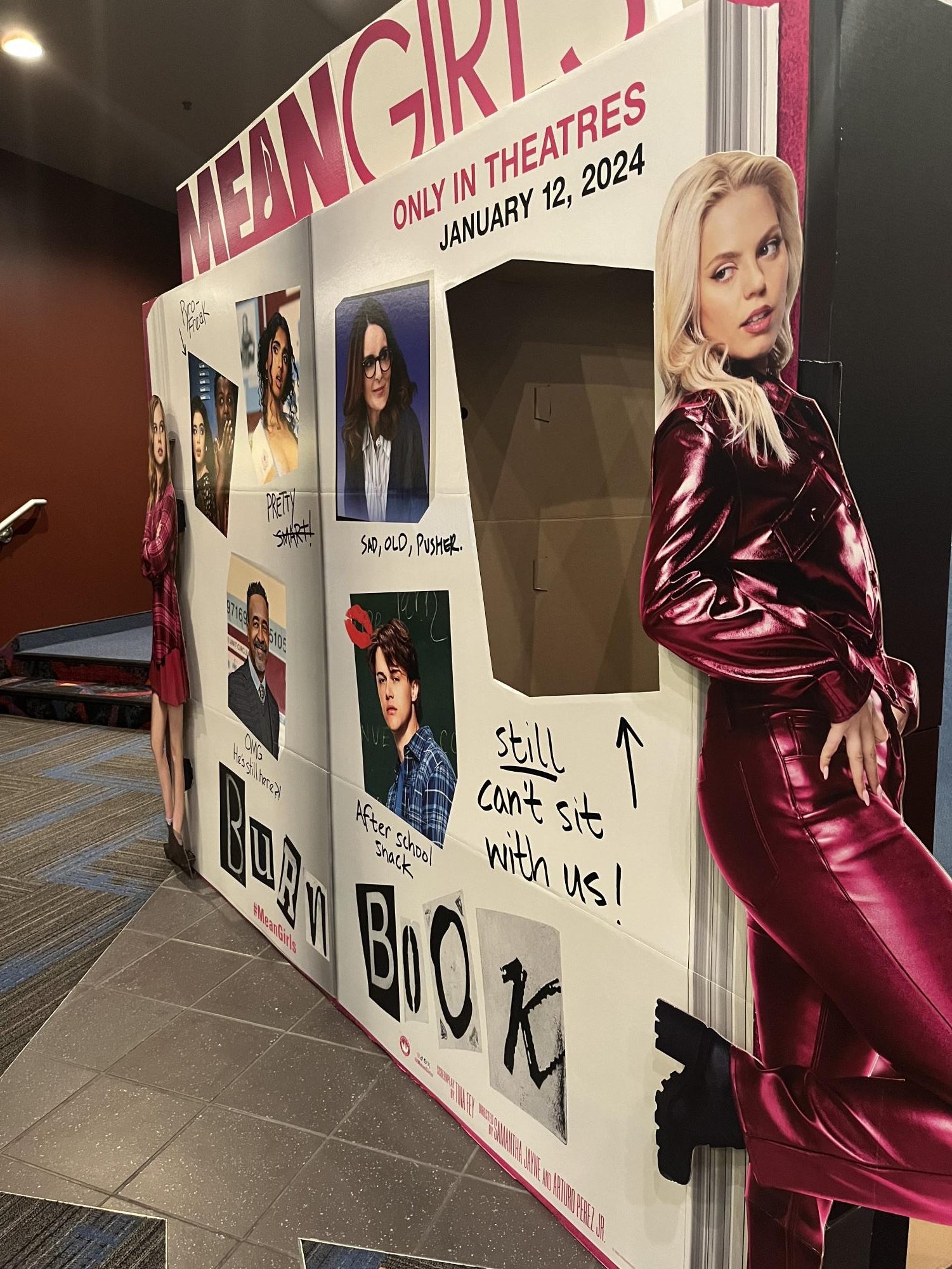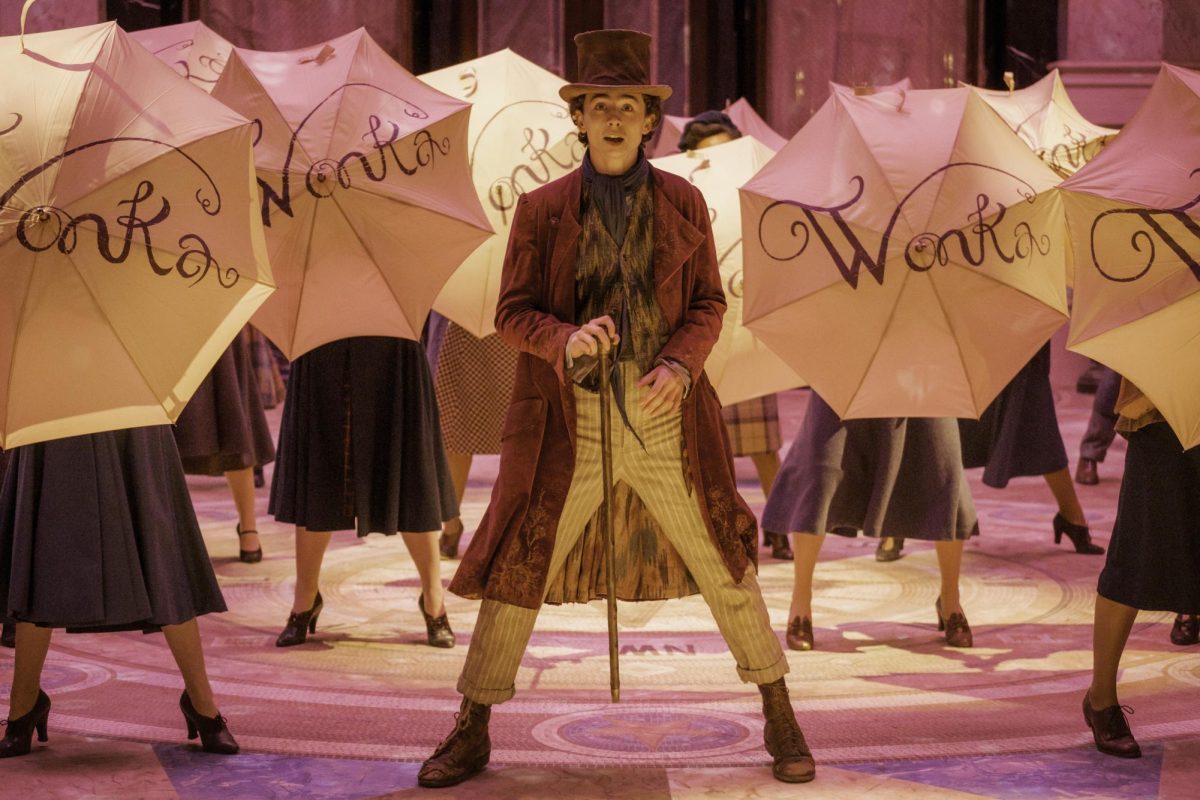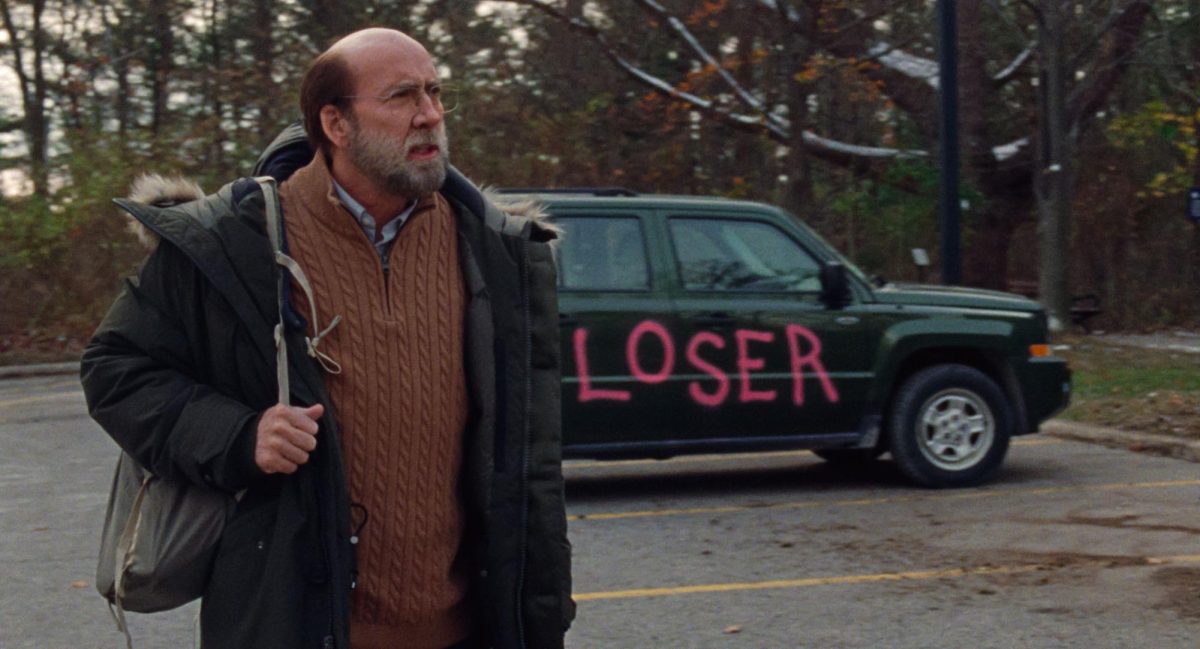
★★★☆☆ (3.0 stars)
Get in losers. The Plastics are back.
For the first time in 20 years, “Mean Girls” hits theaters, but with a new twist. Instead of remaking the iconic original, Paramount Pictures brought the beloved Broadway musical to the silver screen. The movie officially premiered on Friday, Jan. 12.
The story begins with Cady Heron, played by Angourie Rice, entering the daunting hallways of modern-day high school after being homeschooled by her mother for most of her life. Amidst her public education journey, Cady meets three of the most popular girls at Northshore High School. She instantly becomes the newest member of their clique, the Plastics.
Unfortunately for them, Cady has ulterior motives; she wants to take them down. Most importantly, she wants to destroy the empire of popularity surrounding Reneé Rapp’s character, Regina George. Along the way, Cady becomes what she hates most: a mean girl.
In this musical movie, the story remains relatively consistent with the 2004 film but has minor changes, such as eliminating particular jokes about weight or sexual orientation. Although some remain, it is refreshing to see that the directors, Samantha Jayne and Arturo Perez Jr., have attempted to celebrate these things rather than using them for a cheap joke.
The story of this musical is told primarily through Janis ‘Imi’ike, played by Auli’i Cravalho, and Damien Hubbard, played by Jaquel Spivey, who act as narrators at the beginning and end of the movie with songs such as “Cautionary Tale” and “I See Stars.” Although they are technically supporting characters, they deliver two of the most outstanding performances in the film, comedically and vocally.
Many people expected Reneé Rapp to steal the show, but it is difficult to deny that Cravalho and Spivey truly excelled in their roles and captured the essence of a Broadway musical. Cravalho did justice to the character that well-known Broadway star Barrett Wilbert Weed initially brought to the stage.
Her vocals alongside Spivey’s in “Revenge Party” are thrilling and show how much Janis and Damien want to dethrone Regina George for all of the harm she did to their lives. They bring the right passion and flare needed to execute the song correctly. Not once did Cravalho’s voice sound overly produced or exaggerated by heavy editing, unlike some other performances.
Cravalho is most vocally impressive in “I’d Rather Be Me” and “Someone Gets Hurt (Reprise).” The second song is only in the film and is unavailable to stream from the official cast recording, which is a shame because it is the one song that felt the most vocally pure in the entire movie. It sounded like Cravalho was singing live, and it was beautiful.
Cravalho’s version of Janis is also very proud of her sexuality as a lesbian, which is one aspect of this film’s story that stands above the original. Janis did not need to shy away from this identity or fall in love with Kevin Ganatra, the head of the Mathletes, as she did before to be a relevant character.
Another way this movie succeeded was by matching the necessary comedic atmosphere with a hilarious performance from Avantika Vandanapu, who played Karen Shetty. If anyone in the film delivered the feeling of the original movie, it was Vandanapu who expertly portrayed Karen’s confused personality with many blank stares and perfectly timed comedic comments.
Even though these three characters were outstanding, many people’s performances were lackluster. Rice’s Heron is technically the main protagonist, but others often outshine her.
Compared to Cravalho’s vocals, Rice’s voice felt heavily edited and lacked emotion. Most of the time, it felt like she was speaking over a random tune in the background rather than contributing to a complete song. The musical producers might be to blame for the weaknesses in songs such as “Stupid With Love” and “What Ifs,” which they altered to sound slower and more melodically pleasing. In the end, this choice hindered her character more than it helped.
Sometimes, it was difficult to remember that she was the main character. The movie felt more like it was about Janis or even Regina George, primarily because Rapp’s performances in “World Burn” and “Someone Gets Hurt” tremendously outshined Rice’s vocals and character portrayal. Rapp truly understood Regina and how openly and secretly vindictive she was. However, Rice appeared not to be on the same level as Cady. The character’s overly heightened lovesick nature and her thirst for power got thrown to the wind and almost completely forgotten.
“Mean Girls” has some weak spots, especially in the overproduction and altering of the musical numbers. But, overall, the performers who understood their characters made the movie enjoyable and something that audiences could rewatch countless times.
This new adaptation shows how a new generation can retell a well-known story to fit modern societal narratives and highlight differences rather than destroy them. The tale of Northshore and the plastics is now “fetch” again, but this time, for a new era.


















































































